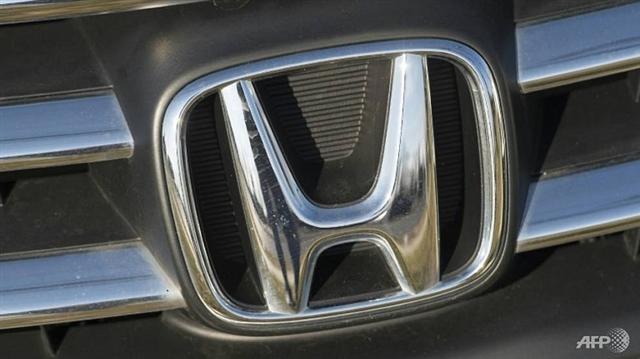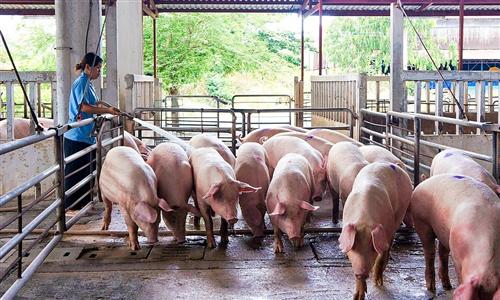Honda import strategy unable to avail of fee cuts
Honda import strategy unable to avail of fee cuts
Japanese carmaker Honda may come to rue its decision to start importing CR-V vehicles, giving up domestic assembly, now that the government has greenlit a 50 per cent cut in registration fees for locally assembled automobiles as part of a new initiative to help the market find its feet amidst the coronavirus pandemic.

Honda import strategy unable to avail of fee cuts, photo AFP
|
Prime Minister Nguyen Xuan Phuc has agreed to slash registration fees for locally-manufactured vehicles, which could represent up to 12 per cent of the vehicle cost, to work up purchasing interest that has been languishing during the COVID-19 outbreak. The registration fee cut, valid until the end of 2020, is not applied for imported vehicles. This will create advantages for domestically produced vehicles as well as help customers save thousands of dollars.
In the list of 154 models subject to registration fee adjustment under Decision No.452/QD-BTC effective from April 3 on adjusting registration fees for automobiles and motorbikes, registration fees for passenger cars or cars with less than nine seats were 12 per cent in eight provinces and cities (Hanoi, Quang Ninh, Haiphong, Lao Cai, Cao Bang, Lang Son, Son La, and Can Tho), while it is 11 per cent in Ha Tinh and 10 per cent in Ho Chi Minh City, Danang, and other cities. The charge is now 7.2 per cent for a pickup truck in the first group of cities/provinces, 6.6 per cent in Ha Tinh, and 6 per cent in other cities.
After years of making stellar profits in the Vietnamese market, in 2018 Honda shifted to import some models instead of assembling them locally to enjoy tax incentives under the ASEAN Free Trade Area.
On account of the registration fee cut, however, many dealers say that the Honda CR-V will lose many of its advantages and even have to join a price war with domestically assembled vehicles. CR-V vehicles are now priced between VND983 million ($42,700) and VND1.1 billion ($47,500), and customers in Hanoi have to pay VND118-131 million ($5,100-5,700) registration fee, while customers only need to pay about VND60 million ($2,600) for a locally built rival Mazda CX-5 or a Hyundai, as registration fees have been cut by 50 per cent for domestically-produced cars. This shows that the future of Honda CR-V in Vietnam is uncertain as price is still a determining factor in sales in the market.
Numerous specialists were of the opinion that imported completely built units would lose their advantage and producers may have to cut costs in order to stay competitive.
Meanwhile, early this month, Honda Vietnam said that it may shift from manufacturing to importing vehicles due to the interruption of manufacturing activities and market stagnation caused by the COVID-19 pandemic.
Honda Vietnam proposed measures to continue removing difficulties for motorbike and car manufacturers by extending deadlines for their tax and land leasing payments.
This is not the first time that Honda Vietnam has floated this idea. While a decision is yet to be made on the proposal, the company’s calculations seem to go straight against the flow of other carmakers who are expanding factories in Vietnam as the country seeks to reduce its reliance on imports. Earlier this year, Ford announced plans to invest $82 million to triple the capacity of its plant in the northern province of Hai Duong from 14,000 to 40,000 vehicles a year. Vietnamese manufacturer Thanh Cong Motors reached an agreement with South Korea’s Hyundai to build a second plant in the northeastern province of Quang Ninh after the first in the nearby province of Ninh Binh. Truong Hai Auto has also built a Kia assembly plant since last September, following assembly lines for Peugeot earlier in the same year, and for Mazda in 2018. Other locally-invested giant VinFast completed the first phase of its car manufacturing plant in the northern city of Haiphong last June with a capacity of 250,000 units a year.
According to the Vietnam Automobile Manufacturers Association (VAMA), car sales hit a five-year low, dropping 36 per cent on-year to about 61,000 units in the first four months of this year due to the slump in demand triggered by the COVID-19 pandemic. Thus, the VAMA proposed the government to consider relaxing and reducing taxes for car-makers, both to support maintaining production and to stimulate consumption. The proposed measures include a 50 per cent reduction in VAT and a 50 per cent registration fee for automobiles to stimulate consumption, the latter of which has just been approved.

























